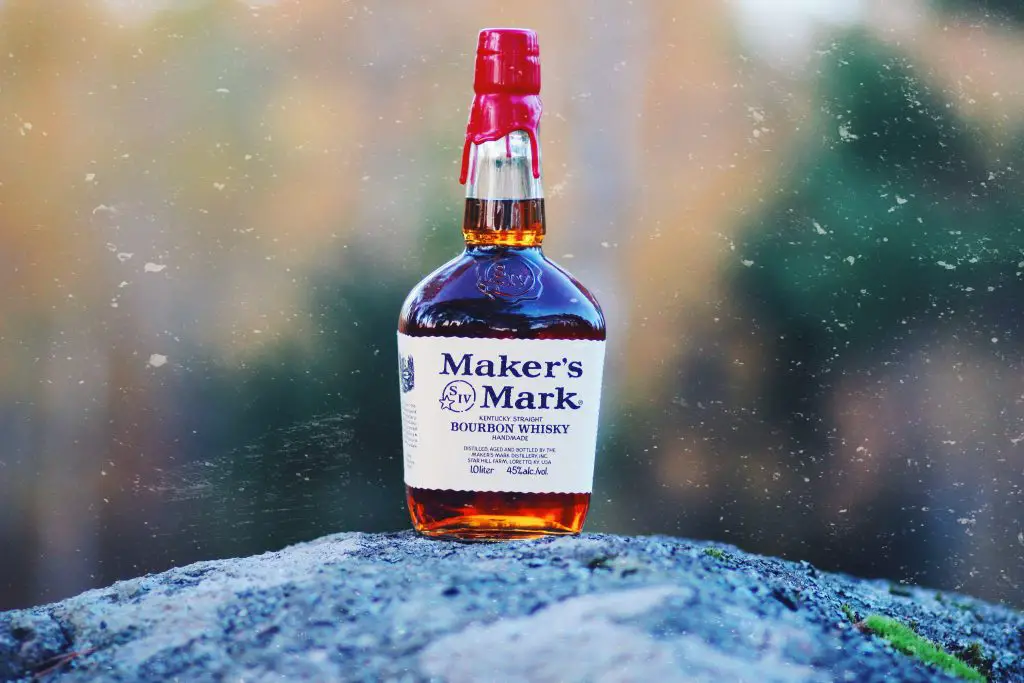Hey there! This site is reader-supported and we earn commissions if you purchase products from retailers after clicking on a link from our site.
Whiskey is a popular spirit that is enjoyed by many people around the world. This being thanks to a rich and complex flavour that is often enjoyed on its own or when mixed into cocktails. While whiskey is often thought of as a relatively light option when it comes to alcohol, you may be wondering how many calories and carbs are in a serving of whiskey.
Table of Contents
- Calories and Carbs In Whiskey
- Other Nutritional Information About Whiskey
- Calories And Carbohydrate Contents Of Other Types Of Alcohol
- The Negative Effects of Whiskey Consumption: What You Need to Know
- Potential Health Benefits Of Whiskey
- Answered: How Many Carbs And Calories Are In Whiskey?: A Comprehensive Guide
- FAQ: How Many Carbs And Calories Are In Whiskey?: A Comprehensive Guide
Calories and Carbs In Whiskey
To begin with, it’s important to note that whiskey contains very few carbs. A one point five ounce (or forty five milliliter) serving of whiskey typically contains approximately zero grams of carbohydrates. This is because whiskey is made from grains, such as barley, corn, or rye, which are fermented and subsequently distilled to produce the final product. During the distillation process, most of the carbs in the grains are converted into alcohol, leaving very few carbs in the finished whiskey. As such, if concerned about your carb intake then whiskey may be an ideal alcoholic drink for you.
When it comes to calories, a one point five ounce serving of whiskey contains about ninety seven calories. This being a relatively low concentration compared to other alcoholic beverages, such as beer or sweet cocktails, which can contain significantly more calories.
It’s worth noting that the carb and calorie content of whiskey can vary depending on the specific type of whiskey and how it is made and bottled. For example, some whiskeys may be aged for longer periods of time, which can affect their flavor and calorie content. Additionally, some whiskeys may be bottled with additional sweeteners or other ingredients, which can increase the carb and calorie content.

How Other Ingredients Impact Calories and Carbs In Whiskey
Generally, the carb and calorie content of whiskey is relatively low compared to that of other alcoholic beverages. However, you should bear in mind that whiskey, like other spirits, will often be mixed with other ingredients, such as soda, fruit juice, or sweetened liqueurs, which can significantly increase the carb and calorie content of the final drink. For example, a whiskey and cola cocktail made with one point five ounces of whiskey and eight ounces of cola can contain about thirty four grams of carbs and about two hundred and forty calories.
It’s also worth noting that the carb and calorie content of whiskey can vary depending on the specific brand and type of mixer that is used. For example, a whiskey and soda made with a sweetened mixer may have a higher carb and calorie content than a whiskey and soda made with diet sodas. If you are trying to watch your carb and calorie intake, it’s a good idea to be mindful of your alcohol consumption and consider choosing lower calorie mixers or opting for cocktails made with light or diet mixers.
How The Alcohol Content Of Whiskey Impacts It’s Carbs and Calories
In addition to the carb and calorie content, it’s also important to consider the alcohol content of whiskey. Like other alcoholic beverages, whiskey contains ethanol, which is the type of alcohol found in alcoholic drinks. The alcohol content of whiskey can vary significantly depending on the specific type and brand. In general, whiskey has an alcohol content of around forty percent by volume (or eighty proof), but it can also range from as low as thirty five percent, and even as high as fifty percent or higher.
Important to the topic at hand though, the alcohol content of whiskey can impact the number of calories and carbs that it contains. For example, a whiskey with a higher alcohol content may contain more calories and carbs than a whiskey with a lower alcohol content. This is because ethanol contains approximately seven calories per gram, so a whiskey with a higher alcohol content will contain more calories from ethanol. Additionally, some whiskeys may be bottled with added sweeteners or other ingredients, which can increase the carb and calorie content.
Other Nutritional Information About Whiskey
As mentioned above, whiskey is a type of alcoholic beverage made from grains, such as barley, corn, or rye, that are fermented and distilled to produce the final product. Whiskey contains very few nutrients and is not a significant source of vitamins or minerals. Here are some nutritional facts about whiskey:
- Like other types of liquor, whiskey contains alcohol, which is the primary nutrient found in alcoholic beverages. Alcohol is a type of psychoactive substance that can affect the way the brain functions. The alcohol content of whiskey can vary significantly, but it is typically around forty percent by volume (or eighty proof).
- Whiskey does not contain any significant amounts of vitamins or minerals. It is not a good source of nutrients and should not be consumed as a replacement for a balanced diet.
Calories And Carbohydrate Contents Of Other Types Of Alcohol
As established above, within a one point five ounce (forty five milliliter) serving of whiskey contains about ninety seven calories and zero grams of carbs. By comparison below are some of calorie and carb contents of different types of alcoholic beverages:
- Vodka: A one point five ounce serving of vodka contains about ninety six calories and zero grams of carbs.
- Gin: A one point five ounce serving of gin contains about ninety seven calories and zero grams of carbs.
- Rum: A one point five ounce serving of rum contains about ninety seven calories and zero grams of carbs.
- Tequila: A one point five ounce serving of tequila contains about ninety six calories and zero grams of carbs.
- Light beer: A twelve ounce serving of light beer contains about ninety five calories and three point two grams of carbs.
- Regular beer: A twelve ounce serving of regular beer contains about one hundred and fifty three calories and thirteen grams of carbs.
- Red wine: A five ounce serving of red wine contains about one hundred and twenty five calories and three point eight grams of carbs.
- White wine: A five ounce serving of white wine contains about one hundred and twenty one calories and three point four grams of carbs.
- Champagne: A five ounce serving of champagne contains about 84 calories and one point five grams of carbs.
As such, by comparison to other liquors and spirits the calorie and carbohydrate content of whiskey is roughly on par. Meanwhile, it is noticeably lower than other alcoholic beverages such as beer and wine. As such, wanting an option that is more healthy than whiskey certainly isn’t the worst option.

So Is Whiskey Good For Losing Weight Then?
Drinking whiskey, or any other type of alcohol, is not a recommended approach for weight loss. While alcohol can contribute to weight gain if consumed in excess, there is no evidence to suggest that moderate alcohol consumption can help with weight loss. In fact, alcohol may contribute to weight gain in several ways:
- As established above, alcohol contains calories, and consuming too many calories can lead to weight gain. A one point five ounce serving of whiskey contains about ninety seven calories, which can add up if you are drinking multiple servings per day.
- Additionally, alcohol may affect your appetite and food choices. Some people may eat more when they are drinking alcohol, which can lead to weight gain. Additionally, alcohol can impair judgment, which may lead to poor food choices and overeating.
- Finally, alcohol can affect your metabolism and the way your body processes and stores fat. Studies have shown that alcohol can increase the production of a hormone called cortisol, which can lead to an increase in abdominal fat. Additionally, alcohol can interfere with the way the body burns fat, which may contribute to weight gain.
With the above in mind then, while whiskey and other alcoholic beverages may not be particularly high in carbs and calories, they are not a recommended approach for weight loss. If you are trying to lose weight, it’s important to focus on a healthy diet and regular physical activity, rather than relying on alcohol for weight loss.
The Negative Effects of Whiskey Consumption: What You Need to Know
Whiskey is a popular alcoholic beverage enjoyed by many people around the world. While it can be enjoyed in moderation, drinking whiskey, like any other type of alcohol, can have a range of negative effects on your health. Here are some potential negative effects of whiskey consumption:
- Impairment: Alcohol can impair your judgment, coordination, and reaction time, which can increase the risk of accidents and injuries. This can be particularly dangerous if you are driving or operating heavy machinery while under the influence of alcohol.
- Sleep: Alcohol can affect your sleep quality, leading to tiredness, difficulty concentrating, and poor performance in activities that require mental alertness.
- Liver disease: Heavy alcohol consumption can increase the risk of developing liver diseases, such as cirrhosis and liver cancer.
- Cancer: Alcohol can increase the risk of developing certain types of cancer, including breast, colon, and liver cancer.
- Mood and behavior: Alcohol can cause changes in mood and behavior, such as aggression, irritability, and depression.
- Nutrient deficiencies: Alcohol can interfere with the way the body processes and uses nutrients, leading to deficiencies in certain vitamins and minerals.
- Medication interactions: Alcohol can affect the way the body metabolizes medications, which can alter their effectiveness or cause harmful interactions.
- Weight gain: Alcohol can contribute to weight gain if consumed in excess, as it can increase your caloric intake without providing any nutritional value.
It’s important to keep in mind that the negative effects of alcohol can be more pronounced in people with binge drinking rather than moderate drinking or who have underlying health conditions.

Allergies And Whiskey
Whiskey is not typically considered an allergen, but it is possible for some people to have an allergic reaction to the ingredients used to make whiskey. Whiskey is made from grains, such as barley, corn, or rye, which are fermented and distilled to produce the final product. Some people may have an allergy to one or more of these grains, which can cause an allergic reaction when they consume whiskey. Symptoms of an allergic reaction to whiskey may include:
- Skin reactions, such as hives or rash
- Swelling, especially of the face, lips, tongue, or throat
- Difficulty breathing or shortness of breath
- Chest tightness or pain
- Anaphylaxis, a severe allergic reaction that can be life-threatening
If you experience any of these symptoms after consuming whiskey, it’s important to seek medical attention immediately. An allergist can help diagnose the cause of your reaction and recommend treatment options. Additionally, If you have an allergy to one or more of the grains used to make whiskey, it’s important to avoid consuming whiskey to prevent a reaction.
It’s also worth noting that whiskey can be made using various ingredients and additives, such as flavors or colorings, which can cause an allergic reaction in some people. If you are allergic to a specific ingredient or additive, it’s important to check the label or ask the manufacturer to determine whether it is present in the whiskey you are considering consuming.
Additionally, while alcohol itself is not considered an allergen, some people may have an allergic reaction to ingredients used in the production of alcoholic beverages. Examples of such include grains, fruits, or additives. Symptoms of an allergic reaction to an ingredient in an alcoholic beverage may include:
- skin reactions
- swelling
- difficulty breathing
- chest tightness or pain
- anaphylaxis (a severe allergic reaction that can be life-threatening).
Also, whilst not usually considered an allergen some people may be intolerant to alcohol. This can cause symptoms such as nausea, vomiting, diarrhea, abdominal pain, and flushing. As such, if you experience these symptoms after consuming alcohol, it may be a wise idea to consult with a healthcare provider.
Potential Health Benefits Of Whiskey
As established above, there are a wide array of potential negative effects of whiskey consumption in excess. That said though, there are certain health benefits to moderate whiskey or another alcohol intake. As such when combined with the lower calorie and carb count established above these health benefits make it certainly not the worst alcoholic drink to consume when trying to be more health conscious. These benefits can include:
Heart health
Some studies have suggested that moderate alcohol consumption, including whiskey, may have a protective effect on heart health. Moderate alcohol consumption has been associated with a lower risk of heart disease and stroke. However, it’s important to note that the potential benefits of alcohol on heart health may be offset by the risks associated with heavy drinking.
Cognitive function
Some studies have found that moderate alcohol consumption, including whiskey, may have a protective effect on cognitive function. Moderate alcohol consumption has been associated with a lower risk of cognitive decline and dementia. However, it’s important to note that the potential benefits of alcohol on cognitive function may be offset by the risks associated with heavy drinking.
Stress reduction
Some people may find that moderate alcohol consumption, including whiskey, helps them relax and reduce stress. However, it’s important to note that alcohol is a central nervous system depressant, which can impair cognitive and physical functioning. Additionally, alcohol abuse can lead to increased stress and other mental health problems.
Answered: How Many Carbs And Calories Are In Whiskey?: A Comprehensive Guide
As established above, whiskey is incredibly low in both calories and carbs with one shot of whiskey typically containing zero grams of carbohydrates and about ninety seven calories. Meanwhile it, like other spirits, is quite healthy by comparison to other types of alcohol such as wine or beer. Additionally, there are some health benefits to moderate alcohol consumption such as heart health and stress reduction.
That said though there is also a myriad of different negative consequences of excess whiskey consumption. Examples of such include weight gain, cognitive impairment, liver disease, or cancer. Additionally, some people can have alcohol allergies or even specific allergies to the ingredients of whiskey.
With this all in mind then, you should drink whiskey in moderation. There are plenty of great ways to do so such as cocktails or tasting different whiskey variants such as scotch and bourbon.
FAQ: How Many Carbs And Calories Are In Whiskey?: A Comprehensive Guide
Whiskey is generally low in carbohydrates, with a one point five ounce serving containing about zero grams of carbs. However, mixing whiskey with other ingredients, such as soda or juice, can significantly increase the carb content of the final drink. If you are trying to watch your carb intake, it’s a good idea to be mindful of your alcohol consumption and consider choosing lower carb mixers or opting for cocktails made with light or diet mixers. It’s also important to keep in mind that alcohol can contribute to weight gain if consumed in excess.
One shot of whiskey typically contains zero grams of carbohydrates and about ninety seven calories. However, the calorie content can vary depending on the specific brand and type of whiskey. Alcohol contains seven calories per gram and can contribute to weight gain if consumed in excess. It is recommended to limit alcohol intake as part of a healthy diet.
Whiskey does not contain any sugar or carbs. Some cocktails that contain whiskey may have added sugar. Be aware of any added sugars in cocktails or mixed drinks if trying to limit sugar or carb intake.
Light beer and hard seltzers tend to have the lowest calorie and carbohydrate content among alcoholic beverages. Light beers typically have around one hundred calories and five grams of carbs per twelve ounce serving. Hard seltzers typically have around one hundred calories and two point six grams of carbs per twelve ounce serving.
Recommended Reading
The Best Bourbon Under $50
Prepare your palate for a flavorful journey, because this list of the best bourbon under $50 has some new and old favorites for you to discover.
How To Drink Whiskey Without Burn? Answered
While the rise in popularity of whiskey is another conversation, let's discuss how you can drink it without your mouth and throat feeling like you have drank liquid sandpaper.
14 Best Peanut Butter Whiskey Brands
Whiskey is an incredibly popular spirit that is seeing a bit of a Renaissance. Let's discover the 14 best peanut butter whiskey brands.
The Difference Between Scotch And Whiskey
Scotch and whiskey are often used interchangeably but what actually is the difference between scotch and whiskey?
Jack Daniel’s Bottle Sizes and Prices
Alongside the changes in Jack Daniel's bottle sizes, there are also understandable price changes. If you love Jack Daniel's whiskey as much as many other people do, learn more in this article.
How to Host the Perfect Whiskey Tasting
Any time is the right to gather up a few bottles of your favorite whiskeys and Scotch and have yourself a whiskey tasting.



